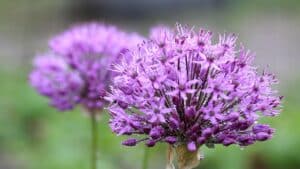
El Niño Fades and What It Means for Your Landscape
Florida’s Cloudy, Wet Spring Ahead
The Sunshine State’s winter has been unusually cloudy and wet, thanks in part to a strong El Niño. But El Niño is weakening and is expected to transition to neutral conditions by spring, with a possibility of La Niña developing later in the year. This means Florida’s springis likely to be wetter than usual with more storms, offering some relief from the cloud cover. However, summer rainfall is uncertain and may be less than usual if La Niña develops.
Here’s a breakdown of how the changing weather patterns might affect your gardening and landscaping:
Spring:
- Expect wetter conditions: “Looking at past strong El Niño winters and springs since 1950, they’ve been wet in Florida in March, then eased off a bit into April and May,” according to Weather Underground. Increased rain means adjusting watering schedules and preparing for potential flooding. Pay attention to local forecasts and adjust accordingly.
- More storms: Be prepared for strong winds and potential hail damage. Protect sensitive plants and consider storm-resistant landscaping options.
- Possible relief from cloud cover: As El Niño fades, sunshine may return, boosting plant growth.
- Focus on plants that thrive in wetter conditions: Choose vegetables like leafy greens and root vegetables that tolerate moisture.
Summer:
- Rainfall uncertainty: If La Niña develops, summer rainfall could be less than usual. This might require more frequent watering or drought-resistant plant choices.
- Monitor drought conditions: Stay informed about local drought declarations and restrictions on water usage.
- Consider heat-tolerant plants: Choose varieties that withstand high temperatures and sun exposure.
Additional tips:
- Mulch: A layer of mulch helps retain moisture in the soil, especially important during drier periods.
- Group plants: Planting similar plants together creates microclimates that can help conserve water and protect from wind.
- Use drip irrigation: Drip irrigation reduces water consumption costs benefiting plants water needs and conserves this limited resource.
- Compost: Improve soil quality and water retention by composting and adding this nutrient rich amendment back into your landscape.
- Aeration: Reduces compaction and encourages water absorption, which in turn reduces stormwater runoff.
By staying informed about the changing weather patterns and adapting your gardening practices accordingly, you improve the likelihood that your Florida landscape thrives throughout the year.
